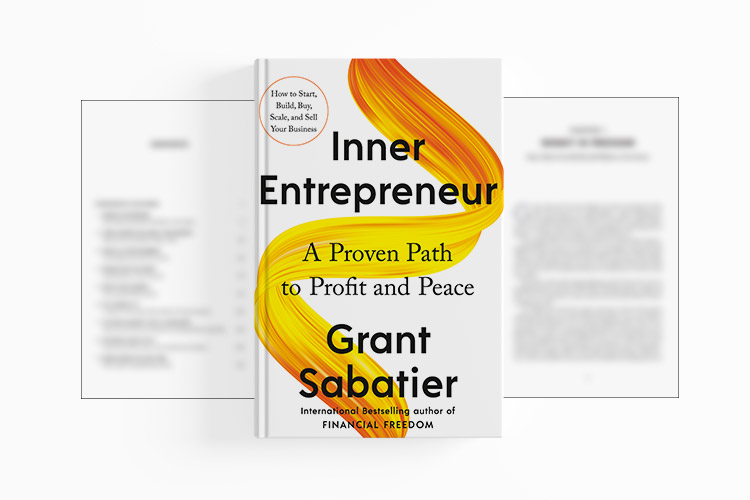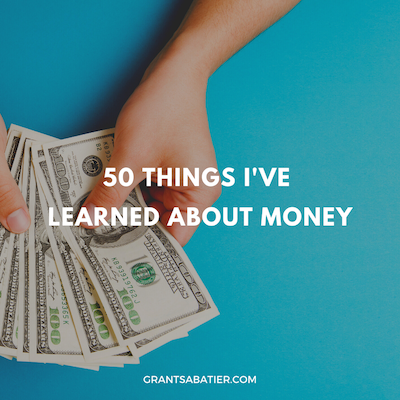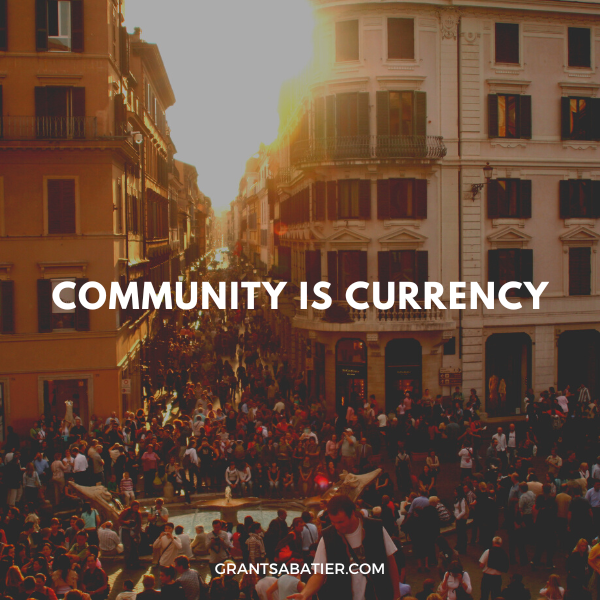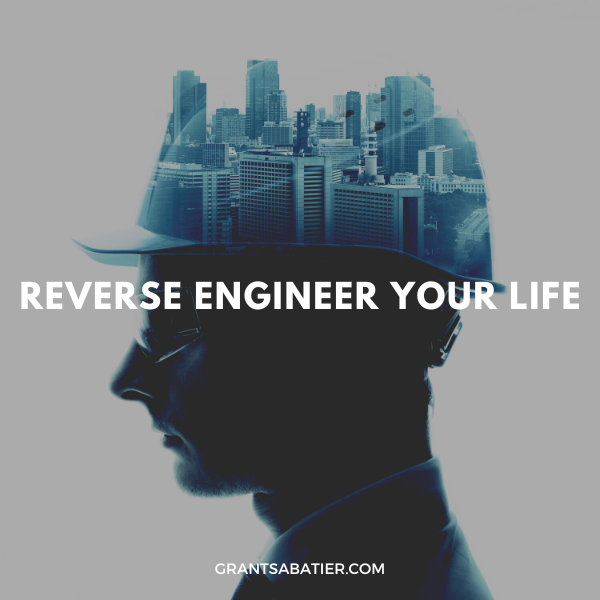When I started my money journey, my first goal was to learn as much as I could, as quickly as I could, about finance, investing, and creating wealth.
Books like Your Money or Your Life by Vicki Robin and The Bogleheads Guide to Investing by Taylor Larimore, Mel Lindauer, and Michael LeBoeu, and many other money books, were my greatest resources. I also derived an immense amount of value from social media.
But these days, as a writer and entrepreneur, I don’t think social media is worth the tradeoffs I have to make for the benefit I get from it. This is a limit I set.
While I see tons of new people in the past year who’ve built businesses and brands on platforms like Twitter, TikTok, and IG, I’m grateful to be past that point in my life. I can consume without creating.
But in 2010, Twitter was new, Facebook was still relevant, and the platforms were very social and interactive. “Influencer” was not a career, let alone a whole industry, and because the platforms were not super competitive, it was easy for users to surface great, exciting, unique content.
In those early days, I learned a ton about blogging, investing, and making money online through social media. I followed guys like Pat Flynn and Gary Vaynerchuk closely and soaked up everything they had to say. I also shared a lot and built my own following that helped Millennial Money grow.
I still read Twitter, but the algorithm has gotten so good at doing what it’s designed to do that it no longer serves a worthy purpose for me as a creator. The goal of any website or content creator or platform is to keep users engaged.
But social media platforms have become so efficient at serving the goals of their creators they’ve become incapable of serving users.
They’ve trapped us in an echo chamber. The only thing I ever see are things that I want to see, not new things that I used to love discovering. It was this discovery that expanded my thinking and my life.
Human beings require exposure to new ideas and information to grow.
This is how we learn. If we are not constantly challenged, we can never fully understand ourselves and the world. We can never truly expand into the fullness of our human capacities.
If we stop growing, we can’t change our lives, let alone the world, for the better because we get too comfortable with our current way of living.
It’s easy and comfortable to surround yourself with people just like you and people who think like you. This feels safe, but for me, it always slowly softens my edge and motivation. It’s too just too easy.
If you don’t set your own bar, you’ll always default to someone else’s. Community is currency – but if it’s not helping you grow, how is it serving you?
The goal of the algorithm is not to help us be more human.
It’s to keep us scrolling for as long as possible. Its goal is not to challenge us with new ideas or perspectives but to keep us complacent and comfortable.
And even though it feels comfortable, we are just beginning to learn how dangerous it is. I’m sure you already know and can feel this.
Every day a new study emerges about how social media negatively impacts our mental health, and the Surgeon General recently issued an alarming advisory calling on the government and tech companies to address the negative impacts it has on the mental health of teens and children.
While there are guys like Cal Newport who completely shun social media, and that’s certainly a viable approach, if you’re going to engage, I encourage you to ensure that social media works for you instead of the other way around.
Here are a few ways I do this:
- Create your own filters: I use social media, primarily Twitter, to keep up with trends in the industries and subjects I’m interested in–finance, investing, small business entrepreneurship, mergers and acquisitions, the economics of having a holding company, digital marketing, etc. So I am careful to only follow accounts that deal with these subjects–and if any of them don’t deliver the content I need them to, I unfollow them immediately. This keeps my feeds curated so I am not overwhelmed by the information I don’t need.
- Follow people who serve as filters: My favorite accounts to follow are those that do the work of curating the best content for me. I don’t have the time to sift through every piece of new information or analyze every new regulation, tool, deal, or trend, so I follow people who have built their brands and are doing just this. Some people I’m into right now in the business acquisition space are @girdley @SMB_attorney @acquanon and @brentbeshore. For more general market trends and entrepreneurship, I enjoy @rabois @bgurley and @mikekarnj. While I stumble on many people who are good filters, I only follow 5 people per topic I’m interested in. You shouldn’t have too many filters or you lose the benefit of a filter!
- Separate your interests: I maintain several separate Twitter accounts. My personal brand account is all money related, my personal account is where I follow sub-topics I’m into, and as I’ve been working on my new book, I’ve started a new account completely focused on the small-to-midsize entrepreneurship market. Having these silos allows me to check in on different areas depending on my needs. I can be more deliberate about how I spend my time and set limits around that times instead of endless scrolling.
- Start over if necessary: At a certain point, you can’t re-train the algorithm. If your social media feeds are overloaded with content that does nothing but distract you, consider deleting that account and starting over from scratch. This will allow you to be more mindful going in and set new limits. I’ve done this twice already.
As with everything in life, your relationship with social media will be defined by the limits you set around it.
The more algorithms become an everyday part of our lives, the more important these boundaries are. The only thing worth doing in life is connecting with our own humanness.
This should be the goal for everyone–not consumption, productivity, or a constant numbing of the mind.
As you know, the goal of financial freedom is not simply to acquire wealth; it’s to give yourself space and time. It’s freedom of mind.
You need to create that space in your life, or someone else will find a way to fill it. I encourage you to engage with the world around you purposefully and deeply.
To understand who you are and what you want, and say no to the things that don’t serve or inspire you.
Grant Sabatier writes about money, mindfulness, and financial independence – all with the ultimate goal of helping you build a life you love.
His story and ideas have been featured in The New York Times, Washington Post, NPR, CNBC, Business Insider, and many other places.




